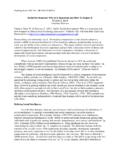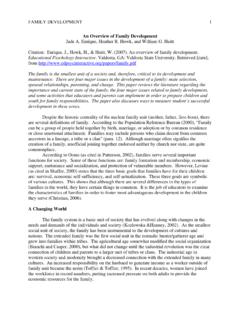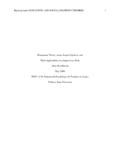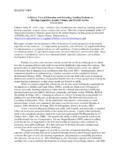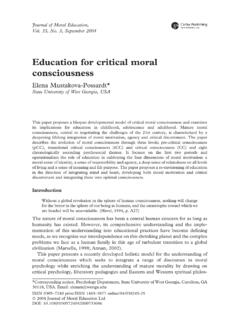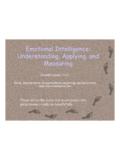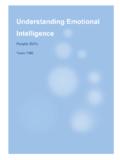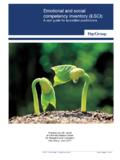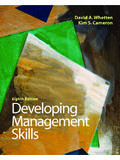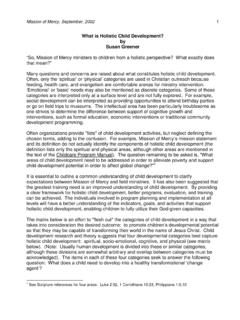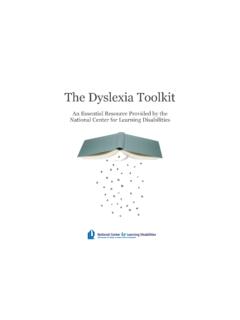Transcription of Emotional Intelligence and Spiritual Development …
1 Emotional Intelligence and Spiritual Development Keyvan Geula, , Marriage, Family, & Child Counselor Citation: Geula, K. (2004). Emotional Intelligence and Spiritual Development . Paper presented at the Forum for Integrated Education and Educational Reform sponsored by the Council for Global Integrative Education, Santa Cruz, CA, October 28-30. Retrieved [date], from Recent studies of the Emotional brain have opened new doors to the understanding of human behavior, character Development , relationships, happiness and well being. Recent research has shown that the Development of Emotional brain is dependent on relationship, initially parent and child relations. Aside from an individual's relation with the parents, the human mind has been engaged historically in another important Emotional relationship: the personal relations with the divine.
2 Any effective process of education must consider the influence of the Emotional experiences with the divine. Recent studies of the human brain have brought into focus the importance of the Emotional brain. The Development of the Emotional brain is closely associated with the proper attachment between parent and child. It is believed that social experiences of the human child shape the genetic expression of that individual. While genes are pivotal in establishing some aspects of emotionality, experience plays a central role in turning genes on and off (Lewis, Amini, Lannon, 2000, p 152). The question is no longer whether it is nurture or nature but to what significant degree nurture influences the expression of nature. When we say the Development and maturity of the human brain is relationship-dependent, we mean that the individual's experience and relationships with self and others directly influence how neural connections of the brain are established.
3 Based on the principle of use it or lose it, the brain will establish or lose certain neural connections, at times permanently. In early childhood, the experiences of the child in relation to caregivers and others create the neural pathways responsible for Emotional modulation. Unfortunately, the learning ability of the brain decreases with age. The plasticity of neurons to sprout fresh connections and encode new knowledge declines after adolescence (Lewis, Amini, Lannon, 2000, p. 163). The Emotional modulation and Development continues later on, although on a much slower pace, within the context of other adult relationships, including that of the relationship of the individual with the Divine Essence. In this Emotional relationship, like all others, the human brain utilizes the same attachment elements and develops new paths to self-organization and Emotional Intelligence .
4 We Are Biologically Primed to Know and to Love Our Creator Sasaki-roshi, a Japanese poet, puts it well: As a butterfly lost in the flower, As a bird settled on the tree As a child fondling mother's breast, For sixty-seven years of this world, I have played with God. A recent interdisciplinary scientific report called Hardwired to Connect claims that the human brain is biologically primed in its basic structure and system to connect to the Spiritual reality and also to others. There is much to be studied on the moderating impact of spirituality and human emotions especially in relation to challenging life events, mastery of self, curbing harmful appetites, being worthy of trust, and lasting happiness. Martin Seligman, a University of Pennsylvania psychologist, proposed: For the last thirty or forty years we've seen the ascendance of individualism and a waning of larger belief in religion, and in supports from the community and extended family.
5 That means a loss of resources that can buffer you against setbacks and failures. To the extent you see a failure as something that is lasting and which you magnify to taint everything in your life, you are prone to let a momentary defeat become a lasting source of hopelessness. But if you have a larger perspective, like a belief in God and in afterlife, and you lose your job, it's just a temporary defeat. (Goleman, 1995, p. 241). The lessons from attachment research can guide our understanding about the powerful effect all interpersonal relationships can have on the Development of the brain, the ongoing functioning of self regulation, and character Development . The personal friendship and love relations with an All-Loving, All-Knowing Creator, like all other attachment relations such as romance, friendship and therapist-client relationship, may facilitate new orbitofrontal Development and enhance the regulation of emotions throughout the lifespan (Siegel, 1999, p.)
6 285). The seed of this relationship is planted by the mother's prayerful communion during pregnancy and later the child's experience of the mother's Spiritual attachment and exchange with the Beloved. Based on the relationship-dependent nature of the brain, one can argue that the Development of the brain is also influenced by the individual's relation with the Divine Spirit directly and indirectly. Spiritual Experience Enhances Emotional Intelligence Spiritual education, therefore, implies the existence of an Emotional relationship with the divine or personal object of one's worship and devotions called God, Allah, Yahweh, Unknowable Essence, Heaven, Tao, etc. The divine luminaries of the human civilization such as Moses, Jesus, Muhammad, Buddha, Krishna, The Bab and Baha'u'llah have been the perfect mirrors of this personal relationship and its transforming influence.
7 Mothers, beginning with conception, are the first educators of human Spiritual nature through their Emotional shared experience with their offspring. Prayer is an Emotional engagement and relations process. More research is needed into the physical, mental, and Spiritual powers of prayer and meditation. Abdu'l-Baha writes: Meditation is the key for opening the doors of mysteries. Although the power of meditation is a mystery to man, its impact in self-mastery and regulation, creativity and discoveries is as old as man. The process of personal devotions, prayer, prayerful meditation and religious fervor and experience also utilizes the same attachment elements that help create new neural pathways responsible for Emotional modulation and mastery (Siegel, 1999). Self regulation, which is seen as fundamentally emotion regulation, is the essence of Spiritual Development .
8 Emotional communication whether with one's parents or the object of one's devotions in prayer is the fundamental manner in which one mind connects with another (Siegel, 1999). An early habit of prayer and prayerful meditation accelerates the person's ability for Emotional regulation. Emotional regulation is at the heart of effective character Development and education, self restraint, self mastery and Development of divine virtues. Empty the boat of your life, O man; when empty it will swiftly sail. When empty of passion and harmful desires you are bound for the land of Nirvana. Buddhism: Dhammapada 369. Character Education and Emotional Intelligence Self Science, an Emotional Intelligence curriculum, is in harmony with the objectives of character education. Its focus is to develop self awareness, in the sense of recognizing feelings and building a vocabulary for them and seeing the links between thoughts, feelings, and reactions; knowing if thoughts or feelings are ruling a decision; seeing the consequences of alternative choices; and applying these insights to decisions about such issues as drugs, smoking, and sex.
9 Self awareness also takes the form of recognizing your strengths and weaknesses, and seeing yourself in a positive but realistic light. Another emphasis is managing emotions: realizing what is behind a feeling (for example, the hurt that triggers anger), and learning ways to handle anxieties, anger, and sadness. Still another emphasis is on taking responsibility for decisions and actions, and following through on commitments. A key social skill is empathy, understanding others' feelings and taking their perspective, and respecting differences in how people feel about things. Relationships are a major focus, including learning to be a good listener and question asker; distinguishing between what someone says or does and your own reactions and judgments; being assertive rather than angry or passive; and learning the arts of cooperation, conflict resolution, and negotiating compromise (Goleman, 1995.)
10 P. 268). The Love Relation with the Creator and Emotional Intelligence The love relation with the creator infuses the world of existence with an Emotional charge. Albert Einstein refers to this Emotional experience of the mystical nature as follows: The most beautiful and profound emotion we can experience is the sensation of the mystical. It is the sower of all true science. He to whom this emotion is a stranger, who can no longer wonder and stand rapt in awe, is as good as dead. To know that what is impenetrable to us really exists, manifesting itself as the highest wisdom and the most radiant beauty, which our dull faculties can comprehend only in their primitive form this knowledge, this feeling, is at the center of true religion. (Albert Einstein, quoted in The Enlightened Mind, an Anthology of Sacred Prose, edited by Stephen Mitchell p.
